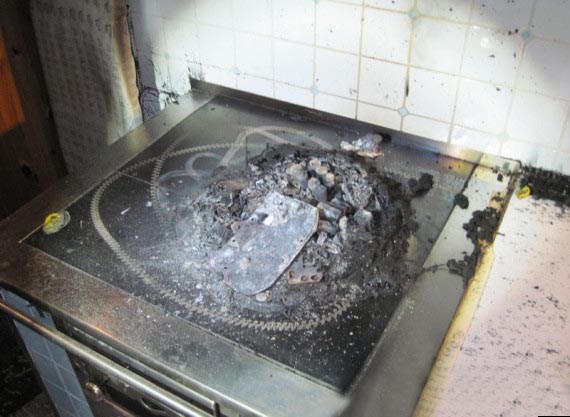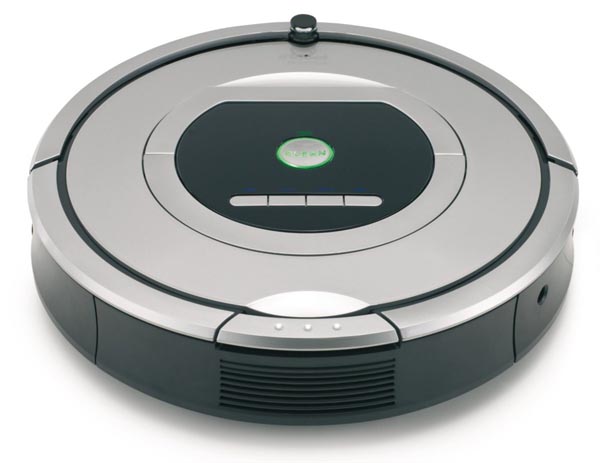Jason Lomberg
ECN Magazine
At least that’s what hysterical media reports would have you believe. The standard account goes something like this – tired of doing its master’s bidding (er, cleaning), an iRobot Roomba 760 made history by committing the first robot suicide. The poor guy chose an especially gruesome way to kick the bucket, committing self-immolation by driving itself onto a kitchen hotplate, and in a final act of revenge, the resultant smoke damage rendered the house uninhabitable. Was it suicide or malfunction?
Let’s take a look at the facts: A 44-year-old homeowner from Kirchdorf, Austria used his Roomba to clean up spilled cereal on a kitchen counter. The homeowner then left his house, but not before switching off the Roomba (and leaving him on the counter). Here’s where it gets freaky: Apparently, the depressed little dirt-sucker then turned itself on and committed self-immolation by rolling onto a hot stove.
 |
| The charred remains of an iRobot Roomba 760 that apparently committed "suicide". |
"Somehow it seems to have reactivated itself and made its way along the work surface where it pushed a cooking pot out of the way and basically that was the end of it," fireman Helmut Kniewasser told The Daily Mail.
“I don't know about the allegations of a robot suicide but the homeowner is insistent that the device was switched off,” he said.
Media outlets jumped on the story.
“It should come as no surprise that a robot slave would seek to end its miserable existence,” snarked David Pescovitz of Boing Boing.
“According to local reports, the Irobot Roomba 760 robot is thought to have rebelled against its chores and decided enough was enough,” noted the Daily Mirror.

I’m no psychologist (or detective), but I doubt what happened qualifies as “suicide.”
According to Merriam Webster, suicide is “the act or an instance of taking one's own life voluntarily and intentionally.”
The Roomba doesn’t have sufficient free will to do anything “voluntarily” or “intentionally”.
iRobot’s dirt-cleaning bot operates autonomously in a very limited capacity. Earlier versions used internal acoustic-based dirt sensors (The Dirt Detect Series 1 Technology) to detect trouble spots, while fourth-generation models utilize an optical sensor in front of the vacuum bin (The Dirt Detect Series 2 Technology) to spot dirt. It can also navigate obstacles (like walls), make 360 degree turns, and four infrared “cliff sensors” prevent steep drops.
None of this implies free will or self-determination. The Roomba has no feelings or emotions, and it doesn’t get depressed.
The version which offed itself – the 760 – is actually the base model of the 700 series, so it wasn’t even very advanced.
My guess? The Roomba detected dirt on the stove and unwittingly caused its own demise. Sorry, tech geeks and Sci-Fi fans – history will have to wait.
